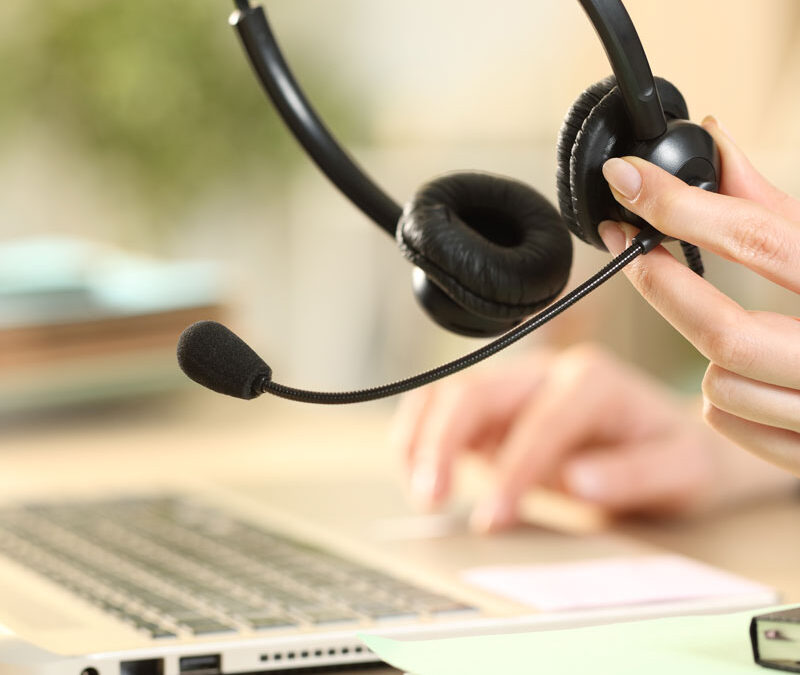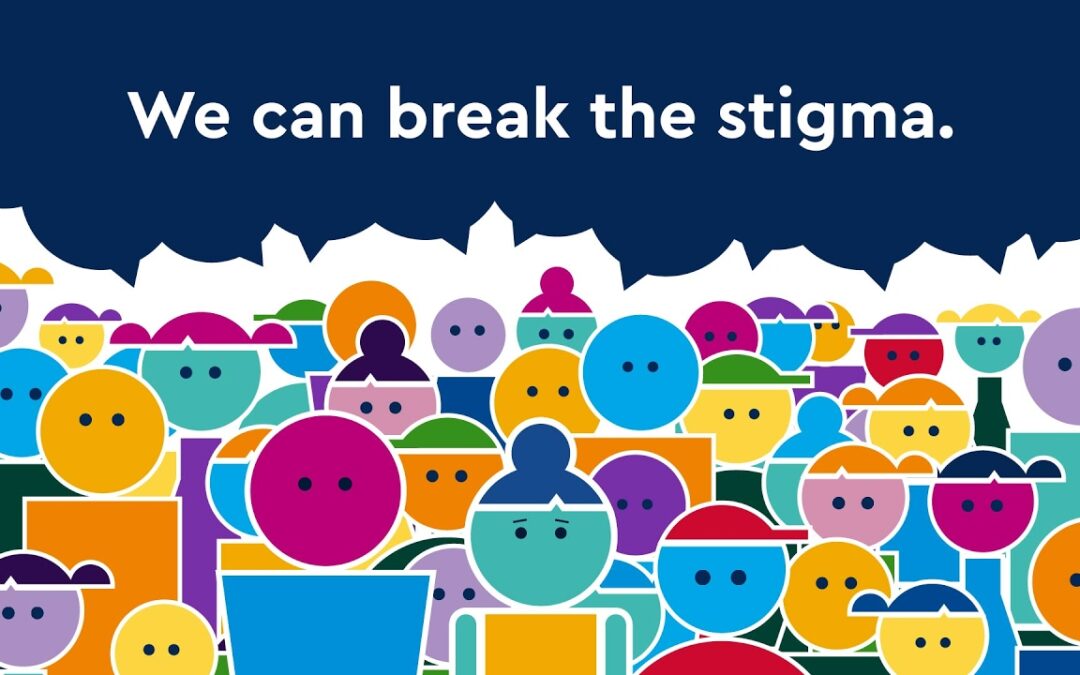
by Philip Payne | Mar 12, 2021 | Tele-Behavioral Health Series
Domestic violence takes on many forms and hides behind many faces. Spousal manipulation, physical abuse at the hands of an ex-partner, or even murder can be results of domestic violence. There are some warning signs, such as a partner being quick to anger or over jealous, but some victims of domestic violence live in silence, unobserved by all except their abusers. Despite the assumption that only men can abuse, and women are always the victims, any gender can be an offender and any gender can be a victim.
The main concern of working with someone living in a domestic violence situation is safety. Safety plans, support groups, safe houses, and money stashed away little by little are all on the back of the mind of those trying to get away from their abusers. Tele-health has recently emerged as an answer to some of these safety concerns, with secure communication to a support worker or case manager that can disappear after it is sent making it a viable option for many in an unsafe situation. Additionally, resources for local shelters, doctors and social service agencies can be loaded into the tele-health platform.
Apportis is a part of this solution, working towards a safer and healthier community for victims of domestic violence. The platform can be used without WIFI, which is a major benefit for those living in domestic violence, as some perpetrators can disconnect the WIFI as a way to cut off their victims from support. There are also resources loaded onto the platform that can be referenced to create a safety plan or learn how to make the first step towards safety. Additionally, with the stigma surrounding victims of domestic violence, having the ability to form a secure HIPAA compliant video connection with a support worker from a safe location is invaluable for those in unsafe situations.
Anyone can be a victim of domestic violence, and as a community we can reach out to those who may feel isolated or alone. Offer help and let those in a domestic violent situation know that there is nothing to be ashamed of, and that it is not their fault. If you suspect that someone is a victim of domestic violence, reach out to a local support line to know how best to help. We invite you to join hands with Apportis in an effort to create a safer future for those of domestic violence.

by Philip Payne | Mar 4, 2021 | Tele-Behavioral Health Series
In order to discuss the merits of tele-case management, a basic understanding of what case management is must be achieved. As defined by the Commission for Case Management Certification, “Case management is a collaborative process that assesses, plans, implements, coordinates, monitors, and evaluates the options and services required to meet the client’s health and human service needs. It is characterized by advocacy, communication, and resource management and promotes quality and cost-effective interventions and outcomes.” That is a fancy way of saying that case management connects those who need help to those that can help, and their journey is guided and tracked by a case manager. Case managers are experts in their field, which can range from behavioral health or substance use all the way to law and financial wellness. Case management is most often used in the social services field such as social work and can also be used by medical, financial and employment specialists. Case managers act as a guide and liaison to those they are working with, helping them connect to resources, make goals, and achieve various outcomes.
Tele-case management is the same as traditional case management, with the added bonus of being screen to screen instead of face to face. In times of COVID, this is especially important. But COVID is not the only reason that tele-case management is significant and effective. Barriers to transportation, childcare, time off from work, bad weather, severe mental illness and fear of stigma can all be overcome with a screen to screen approach. Apportis saw this need and quickly integrated a tele case management platform into their already existing software. With the Apporis tele-case management platform, clients can make appointments, access resources and speak to their case manager all in the privacy and comfort of their own home. The HIPAA compliant video connection allows for interaction between case manager and participant in a way that no personal or human touch is lost. It is a faster, more effective way of getting help to those in need. Additionally, the online platform allows case managers to quickly type in notes and recommendations, allowing for better note taking and increased quality of care.
The Apportis tele-case management platform can be configured to work with a large variety of populations. Because no WIFI is needed, case managers can connect with those who may be experiencing homelessness or other situations in which they do not have access to reliable WIFI. Because there is no app to install, case managers can connect with populations who may be uncomfortable with new technology. The Apportis tele-case management platform is a flexible, reliable, easy way for case managers and participants to connect, no matter what the situation or circumstance.

by Philip Payne | Feb 26, 2021 | Tele-Behavioral Health Series
Stigma, defined by the Mayo Clinic as “when someone views you in a negative way because you have a distinguishing characteristic or personal trait that’s thought to be a disadvantage”, is prevalent in the behavioral health field. Many people face stigma before, during and after their journey to improved behavioral health.
According to the American Psychological Association, “More than half of people with mental illness don’t seek help for their disorders. Often, people avoid or delay seeking treatment due to concerns about being treated differently or fears of losing their jobs and livelihood. That’s because stigma, prejudice and discrimination against people with mental illness is still very much a problem.” Additionally, stigma does not only keep many people from ever reaching out for help with their behavioral health, but it can also slow or even reverse the progress that those who do reach out for help have made. People may become embarrassed if their situation with behavioral health becomes known, and it may cause them to stop seeking help from a specialist. Others may not keep up their behavioral health routine of self-care for fear it will make them stand out or be ridiculed.
Stigma for behavioral health is all around us, from the medias portrayal to decreased federal funding for research and development of cures. Stigma can be found in the workplace, at school, within friend groups or even families. Although the problem seems pervasive, there is hope.
Apportis eliminates the feeling of anxiety that someone may see you walking into a behavioral health clinic and the need to ask for time off of work to see a specialist, something many were hesitant to do as they believed it may lead to their boss thinking differently of them. The Apportis platform brings behavioral health to you, with a secure and HIPAA compliant video connection to a case manager or other behavioral health specialist. The platform is loaded with resources that can be browsed from the comfort of your own home. Apportis is an intuitive platform that does not need WIFI, so those of all ages, skill levels, and circumstances can benefit from the extra layer of privacy that Apportis adds to your behavioral health journey. It also eliminates barriers to transportation, childcare, bad weather and even COVID. The main thing Apportis does, however, is allow you to pursue health without the fear of stigma.
Coming from a family of social service providers, I have been exposed to people in crisis my whole life, many of whom were embarrassed to ask for help because stigma is still so prevalent in our society. Looking back, there are many instances I can recall which the Apportis platform would have been invaluable for these people, allowing them to pursue behavioral health care from the comfort, safety and privacy of their own home. Never be embarrassed to ask for help, as it is a sign of strength rather than a weakness. Reach out and see what Apportis can do for you on your path to health.
Author: Page Jennings

by Philip Payne | Feb 19, 2021 | Tele-Behavioral Health Series
I’d like to familiarize everyone with what tele-behavioral health is so that you can have a meaningful reading experience. Tele-behavioral health is the process of providing behavioral therapy or psychotherapy remotely, utilizing video conferencing or text-based messaging. Millions of people’s mental health needs have been addressed by the means of tele-behavioral health, and I’d like you all to be aware of this valuable resource.
Tele-behavioral health is not subject to any one specific group of people; It is a universal resource. It does not discriminate against geographic location, income level, age, race, ethnicity, gender identity, nor sexual orientation. Tele-behavioral health has become a common tool that can be employed by anyone.
I have many friends that have found relief and guidance in tele-behavioral health resources, especially during the pandemic. Not only can they receive the necessary help they need, but they can do so at a distance. With the technology of tele-behavioral health, my friends who attend college away from home are able to not only maintain but improve their mental health with their primary caregiver. They can easily be connected on their phone, tablet, or computer anywhere to address their emergent needs. College students are just one demographic that can benefit from tele-behavioral health.
You may not know that even our homeless population can access tele-behavioral health support. Specifically, agencies who utilize our Apportis platform can connect tele-behavioral health professionals with homeless individuals as our solution does not need Wi-Fi to function. Oftentimes, these homeless men, women, and children’s mental illnesses are heightened by their stressful living situation, so tele-behavioral health is a vital resource for them to have access to.
At Apportis, we are continuously working with agencies and organizations to help connect tele-behavioral health services with those in need. Tele-behavioral health has become a new norm in our society, and we are here to be a leader in those developments.

by Philip Payne | Feb 12, 2021 | Tele-Behavioral Health Series
Hopefully you have read our last blog (Tele-Medicine vs. Tele-Behavioral Health), so you understand more about Apportis’s tele-behavioral health platform. We have all had good and bad days that come and go, but there is no reason why a serious long-term mental illness should be left unaddressed. It is no secret that the pandemic has been difficult for everyone. Most of us have experienced isolation, loss, depression, anxiety and even panic and regret. I, too, have felt these hardships, so it is important to know that we are not alone in those feelings.
That is why our Apportis team is dedicated to providing software to agencies that deliver social services and behavioral health. Our platform is easily accessible whether you are a student struggling at home, a farmer experiencing difficulties in your rural community, a homeless individual without a warm shelter, etc. There are no bounds to our efforts to connect with agencies that can help those in need.
Let me provide you with an example of how easily our platform connects people with the services they need:
Older individuals in our population are especially vulnerable during these times of crisis, so many are relying on virtual healthcare and means of communication. An older individual in need of behavioral healthcare can easily be connected with a tele-behavioral health professional through an agency or organization of their choice who utilizes Apportis’s software. They can then receive help from the safety of their own home. This also means they can avoid physical contact with possible infections, including COVID-19, that are spread throughout hospitals and doctors’ offices. Aside from COVID-19, they can also get help safely by avoiding the icy roads and sidewalks that come with winter weather.
That is just one example of who Apportis’s platform can serve. As a college student, it comforts me to know that any university can use Apportis’s software for their students and faculty. I understand the stressful demands that come with earning a college degree, so I encourage universities to utilize our behavioral health resource to care for their students’ health and wellness.
The need for tele-behavioral health has grown exponentially since the development of the COVID-19 Pandemic. Apportis is here to tailor our software platform so that agencies can meet the specific needs of those they serve, including you!






Recent Comments